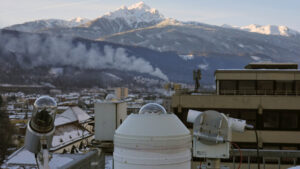WS 3.106: Tourism(s) in Mountain Huts in search of Sustainable Management Solutions
Details
Full Title
Tourism(s) in Mountain Huts: Climate Change, Tourism flows, Visitor Impacts, and Sustainable Management Solutions
Scheduled
—
Convener
Co-Conveners
Assigned to Synthesis Workshop
—
Categories
Tourism, Sustainable Development
Keywords
Mountain Huts, Sustainable Management Solutions, Sustainable tourism
Description
Climate change is profoundly affecting tourist choices in relation to alpine environments. Mountain tourism is changing in numbers and services requested. But climate change is profoundly impacting alpine environments, with an intensification of extreme weather events posing risks to human safety and destabilizing mountain ecosystems. The retreat of glaciers and increasing water scarcity in some regions further exacerbate the environmental challenges faced by mountain huts. Simultaneously, human pressure on these environments continues to grow. Practices associated with huts are rapidly evolving, as a broader range of diverse activities emerge, while traditional pursuits such as mountaineering become increasingly complex due to the effects of climate change. The growing trend toward “unconventional” travel experiences has amplified visitor concentration in certain areas, environmental degradation, overstressed infrastructure, and significant pressure on water resources. The adaptation to these evolving public demands and practices challenges the traditional definitions of huts’ purpose and function, while also sparking conflicts among users. This raises questions: should mountain huts remain simple and rustic, or should they evolve to align with emerging trends in mountain tourism? These shifts are not only transforming the imaginaries surrounding mountain huts but also intensifying the workload of hut keepers, who must accommodate newcomers while striving to preserve the unique alpine hut culture. Welcome to scientists whose contributions provide evidence of changes in tourism, degradation due to “new” tourism and climate change, and of sustainable practices.


